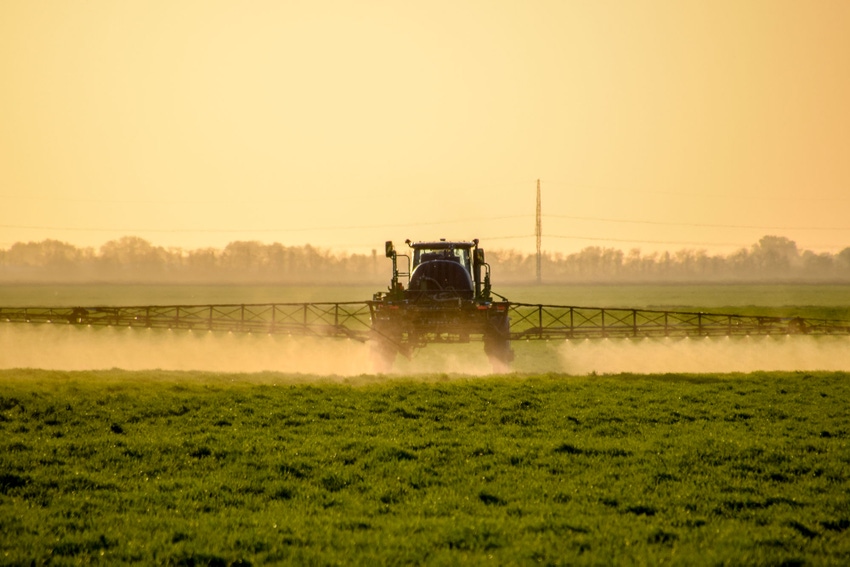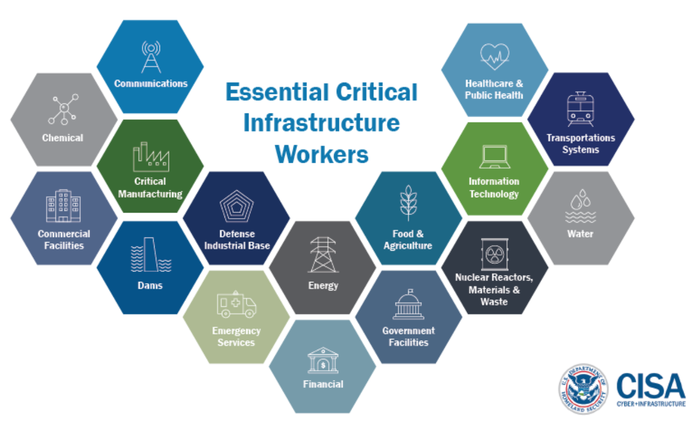March 20, 2020

The fertilizer industry was identified as one of the nation's critical infrastructure industries by The Department of Homeland Security.
The industries whose workers are identified as essential are deemed essential to the U.S. economy and are required to continue operations to the greatest extent possible.
“Fertilizer is responsible for 50% of crop yields and is essential to our nation’s agricultural production and food supply,” said Corey Rosenbusch, The Fertilizer Institute president and CEO.
Prior to the designation of essential by DHS, TFI members were already taking steps to remain fully operational throughout the duration of this pandemic while taking necessary precautions to protect the health and safety of their employees.
“In addition to thanking the administration and the USDA, I’d also like to thank all of TFI’s member companies and employees for the incredible work they do every day and for continuing that work in the face of a global pandemic to ensure that farmers have the plant nutrients where and when they are needed to produce the food, fuel and fiber our world needs,” Rosenbusch said.
Food and agriculture workers deemed essential include:
Workers supporting groceries, pharmacies and other retail that sells food and beverage products.
Carry-out and delivery employees at restaurant carry-out and quick-serve food operations.
Food manufacturer employees and their supplier employees—to include those employed in food processing (packers, meat processing, cheese plants, milk plants, produce, etc.) facilities; livestock, poultry, seafood slaughter facilities; pet and animal feed processing facilities; human food facilities producing by-products for animal food; beverage production facilities; and the production of food packaging.
Farm workers employed in animal food, feed, and ingredient production, packaging, and distribution; manufacturing, packaging, and distribution of veterinary drugs; truck delivery and transport; farm and fishery labor needed to produce our food suppy.
Farm workers and support service workers to include those who field crops; commodity inspection; fuel ethanol facilities; storage facilities; and other agricultural inputs.
Employees and firms supporting food, feed, and beverage distribution, including warehouse workers, vendor-managed inventory controllers and blockchain managers.
Workers supporting the sanitation of all food manufacturing processes and operations from wholesale to retail.
Company cafeterias - in-plant cafeterias used to feed employees.
Workers in food testing labs in private industries and in institutions of higher education.
Workers essential for assistance programs and government payments.
Employees of companies engaged in the production of chemicals, medicines, vaccines, and other substances used by the food and agriculture industry, including pesticides, herbicides, fertilizers, minerals, enrichments, and other agricultural production aids.
Animal agriculture workers to include those employed in veterinary health; manufacturing and distribution of animal medical materials, animal vaccines, animal drugs, feed ingredients, feed, and bedding, etc.; transportation of live animals, animal medical materials; transportation of deceased animals for disposal; raising of animals for food; animal production operations; slaughter and packing plants and associated regulatory and government workforce.
Workers who support the manufacture and distribution of forest products, including, but not limited to timber, paper, and other wood products.
Employees engaged in the manufacture and maintenance of equipment and other infrastructure necessary to agricultural production and distribution.

Other critical infrastructure workers include:
Health care and public health workers;
Law enforcement and public safety workers in addition to first responders;
Workers in the petroleum and energy sectors;
Water and wastewater employees;
Transportation and logistics employees;
Public works employees;
Communications and information technology employees;
Critical manufacturing employees;
Hazardous material employees;
Financial service employees;
Chemical industry employees;
Defense employees.
In a media statement, the International Food and Beverage Alliance called on governments worldwide to ensure that facilities manufacturing food and beverage products, ingredients and packaging essential to the supply chain, as well as the retail outlets ensuring their distribution, can continue operating as needed, with the necessary COVID-19 specific health, safety and security precautions in place.
Secondly, the alliance called on governments worldwide to ensure that border management controls do not result in the disruption of food supply chains by, for instance, designating priority lanes for freight transport, and by allowing the safe movement of transport workers including truck and train drivers, pilots and aircrew, across internal and external borders.
Read more about:
Covid 19About the Author(s)
You May Also Like




